
A progression-free survival advantage persisted at the 3-year mark with venetoclax plus obinutuzumab in patients with previously untreated chronic lymphocytic leukemia.

Your AI-Trained Oncology Knowledge Connection!


A progression-free survival advantage persisted at the 3-year mark with venetoclax plus obinutuzumab in patients with previously untreated chronic lymphocytic leukemia.

Treatment with axicabtagene ciloleucel resulted in improved survival and tumor responses in patients with relapsed/refractory follicular lymphoma versus other available therapies.
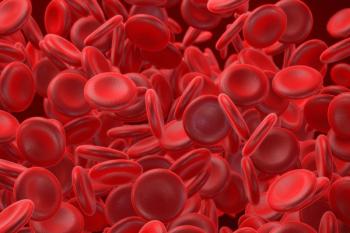
Clinical activity with the combination of naratuximab emtansine plus rituximab was observed in patients with relapsed or refractory diffuse large B-cell lymphoma.

The risk of progression or death was statistically significantly reduced with the use of ibrutinib and venetoclax versus chlorambucil plus obinutuzumab in patients with treatment-naive chronic lymphocytic leukemia.

After almost 5 years of follow-up, results strongly support upfront daratumumab with lenalidomide and dexamethasone as a new standard of care for patients with transplant-ineligible newly diagnosed multiple myeloma.

Data presented at 2021 ASCO indicated that chimeric antigen receptor therapy with ALLO-501A plus ALLO-647 lymphodepletion showed promise in patients with relapsed/refractory large B-cell lymphoma.

The addition of lenalidomide to rituximab continued to improve survival outcomes with durable responses among patients with indolent B-cell non-Hodgkin lymphomas and mantle cell lymphomas.

Patients with myeloma who received bortezomib, thalidomide, and dexamethasone with autologous stem cell transplant had better response duration when daratumumab was used as maintenance therapy.
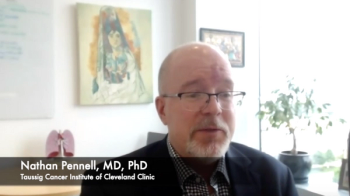
Among other things, Pennell focused on data regarding atezolizumab as adjuvant therapy to improve disease-free survival for patients with stage II/III resected non–small cell lung cancer.

Phase 1 data presented at 2021 EHA indicate that a high rate of response was associated with zandelisib plus zanubrutinib therapy in patients with relapsed/refractory B-cell malignancies and chronic lymphocytic leukemia.

Treatment with the CAR T-cell therapy ciltacabtagene autoleucel significantly improved outcomes for patients with relapsed or refractory multiple myeloma when compared with conventional therapies.
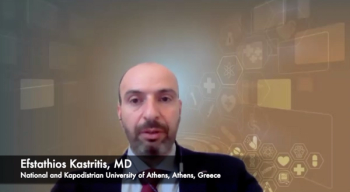
The expert discussed key details from the phase 3 ANDROMEDA trial presented at the 2021 ASCO Annual Meeting.

Data from EHA 2021 showed that zanubrutinib was associated with better outcomes over ibrutinib for patients with relapsed/refractory chronic lymphocytic leukemia/small lymphocytic lymphoma

Data from the OPTIMUM/MUKNINE trial presented at 2021 EHA Congress show promise for daratumumab plus CVRd as induction in patients with multiple myeloma and certain high-risk disease factors.

The standard of care cohort comprised of patients across 3 global trials acted as a comparator for treatment with cilta-cel in patients with triple-class exposed multiple myeloma.

Further investigation will determine if initial results regarding the use of anakinra as prophylaxis for orvacabtagene autoleucel in multiple myeloma is efficacious enough for use in the real-world setting.

Almost all patients with nonmetastatic castration-resistant prostate cancer treated on the phase 3 ARAMIS trial were able to receive the full planned dose of darolutamide for their disease.

CancerNetwork® sat down with Ola Landgren, MD, PhD, at the 2021 EHA Congress to talk about his presentation on first-line standard of care for multiple myeloma.

Technetium Tc 99m tilmanocept may now be used to enhance identification of lymph nodes in pediatric patients with certain tumors.

CancerNetwork® sat down with Robert A. Figlin, MD, at the 2021 ASCO Annual Meeting to discuss results of the CANTATA trial of cabozantinib with or without telaglenastat.

According to data presented at the 2021 ASCO Annual Meeting, patients with crizotinib-refractory ALK-positive non–small cell lung cancer demonstrated long-term response and survival maintenance on brigatinib.

Ola Landgren, MD, PhD, looks at results from the phase 2 CARTITUDE-2 trial of ciltacabtagene autoleucel for patients with multiple myeloma and 1 to 3 prior lines of therapy presented at the 2021 ASCO Annual Meeting.

The CAR T-cell therapy lisocabtagene maraleucel resulted in better efficacy versus standard of care with no new safety signals.
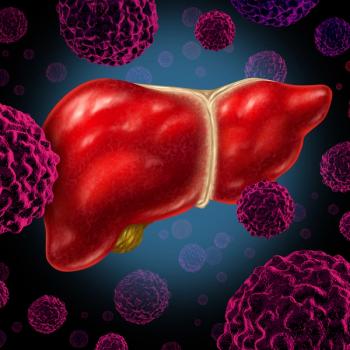
Data from a phase 1b trial of the combination of regorafenib plus pembrolizumab in patients with advanced hepatocellular carcinoma display safety and early efficacy.
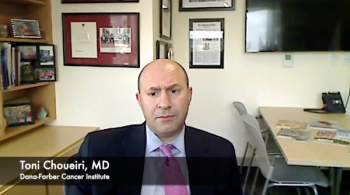
Choueiri detailed combination treatments with follow-up data presented at the 2021 ASCO Annual Meeting.

CancerNetwork® sat down with Paul M. Barr, MD, at the 2021 ASCO Annual Meeting to talk about what data has the greatest potential to impact standard treatment of chronic lymphocytic leukemia.

The recommended phase 2 dose of pembrolizumab plus cabozantinib induced a response with a manageable safety profile for patients with mRCC.
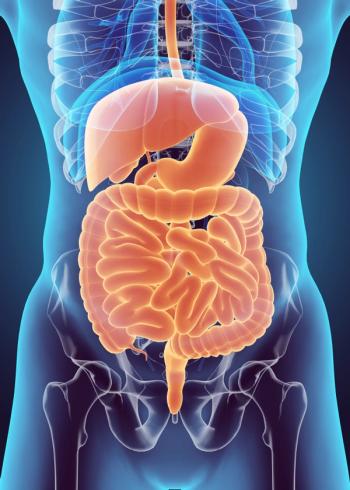
Adding toripalimab and hepatic arterial infusion chemotherapy to lenvatinib yielded robust, durable responses for patients with advanced hepatocellular carcinoma.

Lenvatinib plus pembrolizumab was efficacious for patients with advanced renal cell carcinoma and performed well in subgroup analyses of International Metastatic Renal Cell Carcinoma Database Consortium risk categories and target kidney lesions.

Adding abiraterone acetate and prednisone to androgen-deprivation therapy and docetaxel improved radiographic progression-free survival for men with de novo metastatic castration-sensitive prostate cancer.